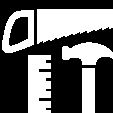Regulations regarding Property Ownership and Alterations within a Condominium Association
Property Ownership within the Condominium Community
Understanding property ownership is an essential part of condominium living. In a condominium association, the unit owners own everything - the units, buildings, pools, tennis courts, lawns, parking lots, roadways, etc. The association owns nothing and consequently pays no property taxes.
The property that you own is used and shared in different ways based on its classification. All condominium property in a multicondominium association is included within the following categories:
- Unit Ownership - That portion of the condominium property subject to private exclusive ownership and use by the condominium owner of record. (e.g., appliances, fixtures, floor & wall coverings, inside wiring/plumbing, windows, etc.)
- Limited Common Elements - The portion of condominium property (generally the patios and balconies at Jupiter Bay) subject to association maintenance but reserved for the exclusive use of the unit owner.
- Individual Association (Building) Common Elements - The common elements that are part of a building or attached to a building and are for exclusive use by the residents of the building. In other words, those parts of a building that are neither limited common elements nor owned by a unit owner.
- Community Shared Common Elements - All other parts of the condominium complex that are shared equally by all owners within the community. (e.g., recreational facilities, parking lots, roadways, etc.)
These distinctions are crucial in properly managing the Association's finances, in that they dictate which expenses are associated with each ownership category. Correspondingly, they are used to determine which owners pay for the maintenance and repair of the various parts of the association property.
Alteration Approvals
Certain owner alterations to their condominium unit require town building permits and/or association approval. These alterations are generally one of four types:
Type A – Alterations Requiring Town Permit & Association Approval
- Replacing air conditioner (air handler and/or condenser). Replacing lines between air hander and condenser.
- Replacing hot water heater or installing tankless water heater. (Tankless heater requires analysis/approval of the sufficiency of the unit’s electrical panel and power by a licensed electrician.)
- Replacing the unit’s electrical panel or adding/relocating electrical wiring or fixtures. (No electrical or other fixtures may be installed on the exterior (common) walls of the condo.
- Adding or relocating plumbing lines (water, sprinkler, sewer or drain) or fire sprinklers.
- Replacing windows or patio sliding glass doors. (Replacement windows must be tinted gray with stainless steel rollers. Replacement windows without hurricane shutter protection must contain high-impact-resistant glass.)
- Installing/replacing patio and window hurricane shutters. All shutters must comply with code requirements including withstanding sustained winds of 180 mph. All patio shutters must be installed inside the unit’s screen/frame and they must be white, except for East patio shutters which must be bronze/black. All window shutters (East & West) must be white. Per FL Statute 718.113(5)(d), a board may not refuse to approve the installation or replacement of code-compliant hurricane protection.
- Adding or changing the configuration of kitchen or bath cabinets.
- Moving, reconfiguring or constructing interior walls.
Type B – Alterations Requiring Association Approval but no Town Permit
- Installing/replacing condo screen doors (doors must conform to Association approved styles).
- Replacing patio screens. (Color must be bronze/black.)
- Installing/replacing patio floor covering (must have epoxy water proofing, and carpeting is not allowed).
- Installing/replacing great room or bedroom floors with hard surface products – wood, tile or vinyl. (Units above the first floor must have sound-proof underlayment.)
- Patching of drywall or making other repairs that are generally the Association’s responsibility.
- Repainting of patio/balcony. (Patio floors may be painted any color desired; however, patio walls and ceiling must be white or generally conform to the exterior color of the building.)
- Changing front door locks (Association must be provided with keys or codes) or adding anything to the front door. (Per FL Statute 718.113(6), An association may not refuse the request of a unit owner for the attachment on the unit owner’s door of a religious object not to exceed 3 inches wide, 6 inches high, and 1.5 inches deep.”)
Type C – Owner Renovations Not Requiring Permits or Board Approval
- Painting or wall-papering interior walls. Painting ceilings, interior doors, door casings, baseboard, crown/trim molding.
- Replacing existing hard surface floors in kitchen, bathrooms and halls.
- Replacing bathroom wall tiles, bathtubs, shower trim kits, water valves, shower heads, shower doors and toilets.
- Replacing kitchen cabinet doors, bathroom vanities, countertops, sinks, and faucets, with no change in cabinet configuration.
- Replacing kitchen appliances, clothes washers and dryers and garbage disposals.
- Replacing popcorn ceilings with either flat or knock down ceilings.
- Replacing interior doors, casing, baseboard, and window/door sills.
- Adding crown molding, chair rails or handrails.
- Replacing wall switches/plugs, GFI plugs, ceiling fans, smoke alarms, A/C thermostats and circuit breakers.
- Replacing heater element(s) in hot water heater or air conditioner.
- Installing security systems (motion sensors, intrusion detectors, water leak sensors, alarms and cameras) and other wireless hubs and devices. Security systems must be able to be remotely monitored and deactivated.
- Installing/replacing window coverings. (Curtains, blinds, plantation shutters and other window coverings must be white or lined or “under draped” in white.)
Type D – Prohibited Alterations:
- Per paragraph 6.1(c) of the Declaration, unit owners are prohibited from enclosing patios with awnings, glass windows or glass doors.
- Per FL Statute 718.113(3), a unit owner shall not do anything within his or her unit or on the common elements which would adversely affect the safety or soundness of the common elements or any portion of the association property or condominium property which is to be maintained by the association.
Type A and B alterations require association review/approval. Type C and D don't require approvals but are included for reference. Please reference My Condominium's Unit Alteration Approval Form for more information: Alteration Approval
Alterations 101
 Florida statutes and an association's Declaration regulate alterations to common elements, limited common elements, and condominium units. Changes to the Common Elements are known as Material Alterations, since they impact all members in a significant and material way. Consequently, they require super-majority approval of the association's total voting interests (80% for Jupiter Bay, 75% default per statute). Changes to limited common elements (e.g. balconies and patios) can be made by unit owners as permitted within the Declaration. Unit owners can make changes to their individual units according to allowances and procedures within an association's rules and regulations. The changes may or may not require Board approval, depending on the type of change.
Florida statutes and an association's Declaration regulate alterations to common elements, limited common elements, and condominium units. Changes to the Common Elements are known as Material Alterations, since they impact all members in a significant and material way. Consequently, they require super-majority approval of the association's total voting interests (80% for Jupiter Bay, 75% default per statute). Changes to limited common elements (e.g. balconies and patios) can be made by unit owners as permitted within the Declaration. Unit owners can make changes to their individual units according to allowances and procedures within an association's rules and regulations. The changes may or may not require Board approval, depending on the type of change.
Common Area Alterations or Material Alterations are defined as changes or additions that significantly alter the make up or appearance of the Condominium property. This includes, but is not limited to, the addition or removal of sidewalks, spas, waterfalls, building facades, recreational facilities, buildings, et cetera, as well as changing the paint color of a building. Condominium owners purchased their units based on the current condition of the community at closing, and they are protected against any major physical change affecting their lifestyle, surroundings or maintenance fees. Further information on Common Area Alterations is provided below.
Unit Alterations are changes to that part of the condominium property which is subject to private ownership. According to Jupiter Bay's Condominium documents and Florida statutes, individual condominium units can be altered by the unit owner as long as the change does not impact: the common elements, limited common elements, structure and safety of the unit, or the condominium unit's neighbors. The Unit Alteration Approval Form is used for obtaining Board approval for changes and improvements to individual condominium units. This form was not designed for minor interior unit changes not requiring a town permit. See the Unit Alterations section of this webpage.
Alterations vs Repairs: Repairs are changes to restore a unit or common area to its original (as built) or prior condition. Repair responsibilities are covered in the "Insurance" webpage. Repairs do not generally require association member approvals or a Unit Change Authorization Approval.
Alteration Restrictions
There are two types of condominium association alterations: 1) unit and 2) common areas. Following are the statutes regulating each:
- Unit Alterations. According to FL Statute 718.111(11)(g)1. "A unit owner may undertake reconstruction work on portions of the unit with the prior written consent of the board of administration. However, such work may be conditioned upon the approval of the repair methods, the qualifications of the proposed contractor, or the contract that is used for that purpose. A unit owner must obtain all required governmental permits and approvals before commencing reconstruction." FL Stature 718.113(3) provides further restrictions: "A unit owner shall not do anything within his or her unit or on the common elements which would adversely affect the safety or soundness of the common elements or any portion of the association property or condominium property which is to be maintained by the association."
- Common Area Alterations. Per FL Statute 718.113(2)(a): "There shall be no material alteration or substantial additions to the common elements or to real property which is association property, except in a manner provided in the declaration as originally recorded or as amended under the procedures provided therein. If the declaration as originally recorded or as amended under the procedures provided therein does not specify the procedure for approval of material alterations or substantial additions, 75 percent of the total voting interests of the association must approve the alterations or additions before the material alterations or substantial additions are commenced. "
Common Area Alteration Exceptions
Florida Statute 718.113(5)(c) says that "The board may operate shutters, impact glass, code-compliant windows or doors, or other types of code-compliant hurricane protection installed pursuant to this subsection without permission of the unit owners only if such operation is necessary to preserve and protect the condominium property and association property. The installation, replacement, operation, repair, and maintenance of such shutters, impact glass, code-compliant windows or doors, or other types of code-compliant hurricane protection in accordance with the procedures set forth in this paragraph are not a material alteration to the common elements or association property within the meaning of this section."
Although this provision refers primarily to shutters, windows, and doors, it could be broadly interpreted as: “any alteration necessary to preserve and protect the condominium property and association property can be installed without owner approval.” I believe added light poles, handrails, cameras, and other alterations used to protect association property and association members fall under this exception.
Building Permits

An alteration to any part of the condominium property (common, limited common or unit), may require a Town of Jupiter building permit. According to Florida Building Code (FBC) 105.1, permits are required for work exceeding $500 as follows:
- "Any owner or authorized agent who intends to construct, enlarge, alter, repair, move, demolish, or change the occupancy of a building or structure, or to erect, install, enlarge, alter, repair, remove, convert or replace any required impact-resistant coverings, electrical, gas, mechanical or plumbing system, the installation of which is regulated by this code, or to cause any such work to be done, shall first make application to the building official and obtain the required permit."